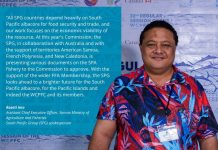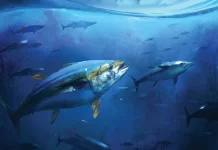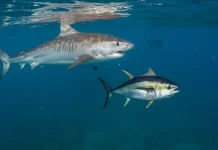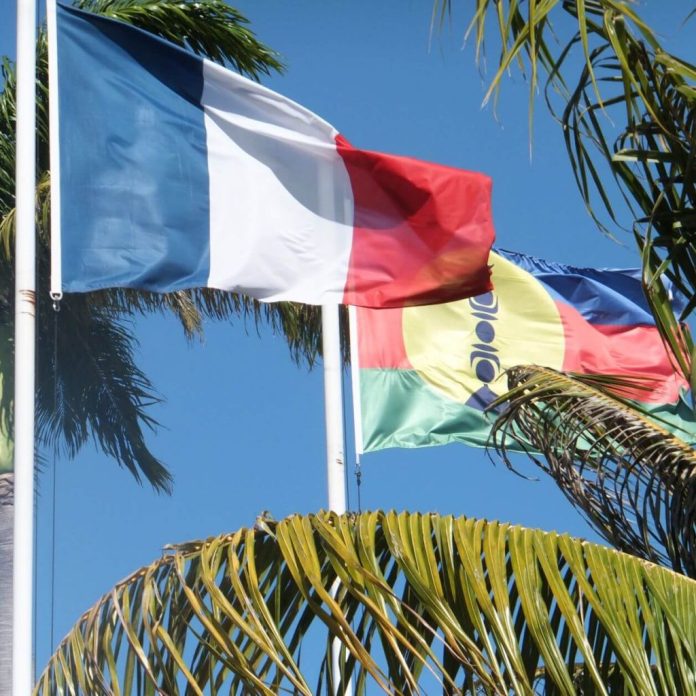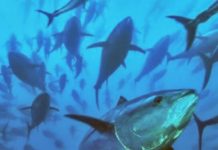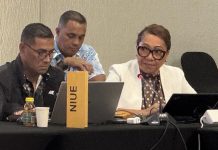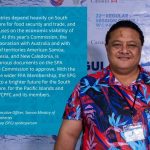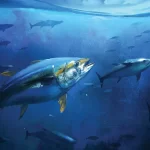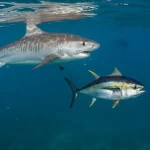By Nic Maclellan
Many New Caledonians will go to church this Sunday, or visit family or go fishing, and some of them will also drop into the local town hall to vote in a referendum to decide New Caledonia’s political status. But tens of thousands of independence supporters — mainly indigenous Kanak — won’t turn out to vote, challenging the credibility of this crucial poll.
France’s high commissioner to New Caledonia, Patrice Faure, announced last month that the vote would proceed as scheduled on 12 December, despite pleas from Kanak customary and political leaders for a delay until after next year’s French elections. “New Caledonians who wish to go to the polls on 12 December will be able to do so in peace and calm,” said Faure. At town halls and polling booths, they will be able to choose between Yes for independence or No to remain within the French Republic.
Despite this, the independence coalition Front de Libération Nationale Kanak et Socialiste (FLNKS) and other independence forces have chosen not to participate in this weekend’s referendum. FLNKS spokesperson Daniel Goa has called on all Yes voters to stay at home on Sunday, and “to stay away from the polling booths to avoid any confrontation with people turning out to vote.” The non-participation of many Kanak and other supporters of independence “will obviously result in an overwhelming victory for the No,” says Goa, “in a proportion that will totally discredit the popular consultation.”
The vote is the third in a series under the Noumea Accord, a 1998 agreement between the French government and supporters and opponents of independence. After more than twenty years’ transition involving the devolution of powers from Paris to New Caledonia, the referendums ask, “Do you want New Caledonia to accede to full sovereignty and become independent?”
In the first referendum, in November 2018, the Yes campaign won 43 per cent support; in the second, in October 2020, this rose to 46.6 per cent. The FLNKS was hoping for majority support in the third and final vote in late 2022, but France’s rush to hold the vote this week led to their change of policy.
“This referendum is the culmination of the Noumea Accord, the culmination of a decolonisation process,” says Victor Tutugoro, president of Union Progressiste Mélanésienne (UPM), one of four FLNKS parties. “The FLNKS, as a representative of the indigenous people, the colonised people, has said that the referendum should be delayed and we will not turn out to vote on 12 December. Despite this, the French state has gone ahead to organise the poll without the first people, the colonised people. So who will turn out to vote? People who have never been colonised?”
In a rare sign of unanimity, all pro-independence forces – political parties, trade unions and customary leaders – have formed a joint committee to back the call for non-participation. With the likely absence of tens of thousands of independence voters, Kanak and non-Kanak, the poll has little credibility. It does nothing to resolve the current political impasse that divides supporters and opponents of independence. There’s trouble ahead and the French government is responsible.
Opponents of independence have forged Les Voix du Non — the Voices of No — an alliance of political parties who want to maintain New Caledonia within the French Republic.
“We’re seeking to mobilise people who have voted No in the past, to ensure that they will turn out on the twelfth,” spokesperson Christopher Gygès tells Islands Business. The pandemic means “it’s very hard to estimate the likely turnout, even with opinion polling about voting intentions. But we’re getting a feeling about attitudes on the ground, because we’re out and about, talking to people.”
“Our objective — a very ambitious objective — is to maintain the same No vote that we obtained in 2020,” says Thierry Santa, leader of the anti-independence party Rassemblement-Les Républicains. A key member of Les Voix du Non, he served as president of New Caledonia between 2019 and February this year, and remains a member of New Caledonia’s multi-party government under his successor, President Louis Mapou.
“But one problem is that some of our supporters, especially those who live deep in the valleys, in the tribes, are unlikely to turn out because of the call from the independence movement. In a small village, they may face some pressure and so they won’t go and vote.”
Complacency also exists among pro-French voters, he adds: “We have tried to maintain our mobilisation, despite the nonparticipation of independence parties, which means some people think ‘we’ve won, so there’s no need to go and vote!’ At the same time, there is the health crisis which continues to worry sections of the population. So we’ve really been trying to reach out to those people, telling them that they have to get out and vote.”
Like other anti-independence leaders, Santa welcomes greater autonomy from Paris while wanting to retain French sovereignty. “I think that we already have a very great autonomy, and that an ongoing decolonisation process can extend that autonomy within the French Republic, without completely cutting ties with France. This is the basis for the discussion that we will inevitably have, to forge a consensus between us, to recognise the recognition of identity that is at the heart of the independence struggle, even while recognising the diversity of ethnic communities that make up the New Caledonian kaleidoscope.”
The large Wallisian and Futunan community in New Caledonia has historically backed the conservative anti-independence parties, but a new generation of Polynesian voters are more open to engagement with the independence movement. The Eveil Océanien (Pacific Awakening) party, led by Milakulo Tukumuli, has said “No, not now” to independence. But Tukumuli has told members and supporters they can freely decide whether to participate in Sunday’s vote or stay at home. Many people in this islander community, hit hard by a recent wave of Covid-19, have other priorities.
The rush to hold the referendum is polarising the nation. Last April, key independence parties called for the third poll, but wanted it held in late 2022, after the French national elections. The decision on the earlier date of 12 December 2021 was taken by the French government following discussions at a roundtable in Paris last June.
At the time, leaders of the largest pro-independence parties expressed concern at what they described as a “unilateral” decision about the date rather than a consensus of delegates at the roundtable. France’s Overseas minister Sébastien Lecornu agreed that this was a decision from Paris: “I would like to point out that this date is not the subject of a consensus… It’s an initiative that we are taking within the strict framework of the powers of the French State.”
In the lead-up to the first two votes in 2018 and 2020, former French prime minister Edouard Philippe invested extensive time and effort in forge a consensus over the date, registration of voters and other contested issues. But the French government under his successor Jean Castex has been distracted by wider concerns.
For months, and especially since the latest surge of Covid-19, Kanak customary leaders and independence politicians have called for a delay in the poll until 2022. But the young and ambitious overseas minister has forged ahead, despite warnings and cautions from across the spectrum. The final confirmation of the December date came not from the prime minister, but in an offhand statement by high commissioner Faure. “We are shocked that it was the high commissioner who made this announcement, rather than the Overseas Minister or the Prime Minister,” UPM’s Victor Tutugoro told Islands Business, “because the issue of New Caledonia is their responsibility.”
Many French and New Caledonian commentators have highlighted the ambitions of the thirty-six-year-old Lecornu, who is a fervent supporter of Macron’s LREM party. One Kanak leader told me the Minister is “young, ambitious and arrogant — a bad combination in a politician.”
Rassemblement’s Thierry Santa, a pro-French loyalist, is more diplomatic, but notes: “To be honest with you, Minister Lecornu has his own way of working, that involves breaking many of the traditional codes of practice. This has allowed things to move on a bit faster than usual, but it’s also shaken things up and caused some tension. His way of working today is criticised more and more. I agree that there are issues about his level of experience and the need for respect.” Things have moved faster, he adds, “but it’s a problem if this throws up roadblocks… His way of working is now less and less accepted and has created reactions that have stopped things moving forward.”
The rush to the referendum and Lecornu’s “crash through or crash” style has provoked a flood of condemnation from diplomats, academics, Pacific island leaders and other people with a deep knowledge of the French dependency.
Among them is Denise Fisher, a former Australian consul general in Noumea, who has described France’s plan to continue with the December referendum as “the most stunning, the most disappointing and the most consequential decision in the last twenty years.” The refusal to delay the poll “undermines the legitimacy of this decisive vote,” she says.
Vanuatu prime minister Bob Loughman has called for a delay in the vote, while the five-member Melanesian Spearhead Group, or MSG, has issued a joint statement to the United Nations: “We are deeply concerned, like many New Caledonians, that the prevailing circumstances of the Covid-19 pandemic in New Caledonia… does not present a conducive environment for a fair, just, credible, transparent and peaceful conduct of the self-determination referendum.” The MSG warns that “the integrity and credibility of the referendum process and its outcome are seriously at stake.”
This concern is echoed by a group of eminent figures from Polynesia and Micronesia, including former presidents of Kiribati, Palau and Marshall Islands, the outgoing Tuvalu prime minister, a former US Congressman from Guahan (Guam) and the outgoing secretary-general of the Pacific Islands Forum. Through the organisation Pacific Elders Voice, they have written to President Macron urging him to “be open to the voice of the leaders of the Kanak people and show consideration and respect for their wishes. We urge this so that the situation does not turn to violence and the dialogue remains open.”
In France, an open letter from sixty-four leading specialists on New Caledonia — historians, anthropologists, researchers and more — questioned the French government’s refusal to delay the vote until 2022: “A self-determination vote in New Caledonia without the Kanaks? It’s not only a political and moral mistake: it is a flashback that evokes the gloomy ‘events’ of 1984–1988 [a period of armed conflict in New Caledonia].” They went on: “We witness with amazement and concern the complete challenge to the 1988 Matignon Accords and the 1998 Nouméa Accord which, out of Ouvéa’s ashes, had given rise to immense hope: that of a peaceful and inclusive decolonisation.”
These concerns are echoed by New Caledonian historian Louis-José Barbançon, a leading intellectual among the Caldoche (New Caledonians of European heritage, born and bred in the islands, who often regard with some scorn the “metros” from Paris). Writing in Le Monde, Barbançon says that “in their own country — the only one they have — the Kanak should never be seen as enemies; otherwise, we will always remain in a colonial situation.”
Independence supporters are especially concerned that the French authorities have pressed on with the process in the midst of the Covid-19 pandemic. New Caledonia avoided large numbers of coronavirus cases for more than eighteen months, but since 6 September there’s been a terrible surge of the Delta variant. The current tally rests at 12,385 cases and 279 deaths in a territory of just 272,000 people.
In this climate, the mood in the towns and tribes is markedly different to the earlier referendum campaigns, which involved large public meetings, street rallies, concerts and other mass events. Today, far fewer flags can be seen — either the blue, white and red French tricolour or the multi-coloured flag of Kanaky — and campaigning has been disrupted by a lockdown and declaration of a state of emergency. Even today, with fewer daily cases and the lifting of the state of emergency, large gatherings are still limited until 19 December, curtailing the capacity of political parties to mobilise and enthuse their supporters.
Beyond the FLNKS call for “non-participation,” the lived experience of the pandemic will depress turnout for Sunday’s vote. While people from every community have been affected by Covid-19, the death toll has fallen disproportionately on indigenous Kanak and islanders from the Wallisian community, reflecting disparities in housing, income, and access to information and health services in rural areas and squatter
settlements.
The official Institut des Statistiques et Etudes Économiques has confirmed the impact of the pandemic, reporting that “the number of deaths recorded in September 2021, 1.8 times higher than the 2015–2019 average, appears to be quite exceptional.” A recent ISEE bulletin reported, “All causes combined, the municipalities of New Caledonia recorded a total of 310 deaths in September 2021 and 250 deaths the following month.” This is “a 144 per cent increase for September over previous years” and “for October, double the average usually observed.”
With dozens of extended families in mourning, Kanak and islanders face cultural obligations and significant expense to mark the death of loved ones. Many people have little time for the blah, blah, blah of politicians — even for such an important referendum. “We are in national mourning and we are not even out of lockdown,” Basil Citre of the Dynamique Autochtone party told journalists last month. “Talking about politics and referendums when many families are in mourning is not the right option.”
For the French government, the poll will not be invalidated by a low turnout. Voting is not compulsory in France, and national and local elections are often marked by low numbers and abstention.
For Francis Lamy, a councillor of the Conseil d’Etat, France’s highest administrative court, French judicial case law is clear: “A low turnout is not a sign that the ballot is irregular. I remind you that voting is not compulsory in France and that there is no minimum turnout required for this referendum.” Lamy heads the official Control Commission that oversees the vote (alongside electoral observers from the United Nations and the Pacific Islands Forum).
Les Voix du Non’s Christopher Gygès echoes the government view: “We think that a certain number of independence supporters won’t follow the orders issued by their leaders, but even without their participation, the referendum is legitimate.”
This narrow legalism ignores political realities. A decolonisation referendum without participation by most indigenous Kanak — the colonised people — lacks credibility. The two previous polls have been marked by very high turnout (81% in November 2018 and 85.6% in October 2020). This year, the absence of tens of thousands of pro-independence voters will be a blow to the credibility of the outcome — especially as non-participation will likely be highest in Kanak-majority areas in the Northern Province and outlying Loyalty Islands.
The FLNKS and other pro-independence forces have called for “non-participation” in the vote, rather than an “active boycott” that could lead to disruption of polling or clashes with the hundreds of extra soldiers and paramilitary police deployed to New Caledonia in recent weeks. These include 15 extra squadrons of gendarmes’ mobiles, amounting to 1,100 officers, supported by a small contingent of military personnel on attachment to the police. Paris is dispatching 30 armoured cars and extra helicopters to support this deployment.
The conservative leaders of Les Voix du Non are not expecting serious problems, due to this show of force.
“We are confident that the same message is coming from the loyalists and the independence parties: that the process should be peaceful,” says Gygès. “We think it’s helpful that the French state has deployed the ‘forces of order’ to avoid any disruption. At this stage, we’re confident about a smooth running of the referendum and the period afterwards.”
Former president Thierry Santa acknowledges the vast majority of Yes voters will respect the FLNKS watchword on non-participation. “However there will be some who will vote on 12 December, because there is some pressure from the new generation of independence activists, who complain against the elders who are still in positions of power.”
Santa also thinks that Sunday will be calm. “I’m not worried about conflict because I think the term ‘non-participation’ is designed to avoid any disruption,” he tells me. “By saying ‘non-participation’ instead of ‘boycott’, I think that’s a way of saying they want the referendum to go ahead. So I don’t think that access to the polling booths will be blocked, or the ballot boxes will be smashed with an axe! I’m quite optimistic about the way that the vote will proceed, apart from a few young radicals here or there. Clearly the independence parties are calling for a peaceful process and not an active boycott of the vote. They’re happy for people to go fishing or to their gardens.”
Regardless of the outcome, this week’s vote marks the last referendum under the 1998 agreement known as the Noumea Accord, a decolonisation process that has framed New Caledonia’s politics and economy for more than twenty years.
The French government now proposes replacing the Noumea Accord, which has devolved many powers to its Pacific dependency and restricted voting for local political institutions to indigenous Kanak and long-term New Caledonian citizens. Overseas Minister Lecornu has announced that the transition to new governing arrangements must be completed in just eighteen months, by 30 June 2023, to be followed by a vote on a new political statute.
Southern Province President Sonia Backès — leader of the right-wing Les Républicains Calédoniens party (LRC) — has called for a revision of the clé de repartition (an agreement that divides revenues between New Caledonia’s three provinces). Criticising the FLNKS for its “lack of political courage” in avoiding the vote, Backès wants a new deal to reduce the share of revenue allocated to the Kanak-majority rural provinces.
“With the clé de repartition, it can’t go on as it is,” says Christopher Gygès a member of the LRC. “While we need to continue development in the Northern Province and the Loyalty Islands Province, it can’t continue to unbalance the South. We’re all united is well on the voting rights and the electoral roll: the ‘frozen’ electoral roll can’t continue as it is. The French state has also written that after the third referendum, the electoral roll can’t remain frozen.”
Such changes to electoral registration for the local provincial assemblies and national Congress would enable more recently arrived residents to vote for the local political institutions. This pressure for thousands of extra French nationals to be added to electoral rolls will be fiercely resisted by the independence movement.
Gygès regards the outcome of Sunday’s vote as a foregone conclusion: “Regardless of the opinion of the independence movement, the people have New Caledonia will have spoken three times to say that New Caledonia should stay within the French Republic. We’re certainly open to dialogue about what should come next, but it’s up to the independence movement to say when they’re ready to talk.”
That clearly won’t be any time soon. Leaders of all the major pro-independence parties issued a statement last week saying bluntly that “the political timetable for discussion imposed by the French State in the aftermath of 12 December 2021 is not ours and only commits them. Therefore, we reserve the right to initiate discussions with the State after consultation with our respective political structures. We also wonder about the legitimacy of the current interlocutors, even though the national elections have not yet occurred.”
Rassemblement’s Thierry Santa agrees that little can be resolved until there’s a new government in Paris: “It’s clear that any future statute for New Caledonia can only be finalised by the new President, the new Prime Minister and a new Overseas Minister, who will only be determined as a result of the ballot in the presidential and legislative elections next year. Personally, I don’t think we’ll see a roundtable involving all three partners until after the elections.
“There will be bilateral talks between us and the French state, between the independence leaders and the French state and even between us here in New Caledonia,” he adds. “But I’m convinced there won’t be three-way talks until the new government is in place after the national elections. The current government can’t solve the problems of New Caledonia in the next few months, especially in the middle of an election campaign.”
UPM’s Victor Tutugoro stressed: “They just want to talk about yet another statute, for the nth time. We tired of this discussion of statutes — we want our independence. We will challenge this fake referendum, locally and internationally, at the United Nations, calling for a real referendum for the colonised people.”
And Australia’s role? In recent years, France and Australia have strengthened their strategic partnership in the Indo-Pacific region, concerned over rising Chinese influence. But the relationship has been damaged by the recent decision to cancel the $90 billion (US$56 million) submarine contract between Australia and the French corporation Naval Group.
As Australia joins Britain and the United States in the new AUKUS strategic partnership, Thierry Santa says, “It’s absolutely certain that the ripping up of the submarine contract by Australia and the United States has influenced France’s attitude towards New Caledonia. I think that for a long time, France was relying heavily on its relationship with Australia to strengthen the Indo-Pacific axis. The fact that Australia has turned its back on the submarine contract has really made France realise that it’s on its own in the Pacific territories.”
With President Macron publicly describing Scott Morrison as a liar, and both France and Australia moving to elections within the next six months, the issue has become highly politicised. As he seeks re-election in April, Macron faces stiff competition from extreme-right figures like Marine Le Pen and Eric Zemmour, and the short-term temptation to act tough — regardless of the long-term interests of New Caledonians — is overwhelming.
Even a loyal supporter of the Republic like Thierry Santa recognises the significance of rushing to a referendum before the French elections.
“The debate over the submarines has focused attention in metropolitan France about the role of the Pacific territories,” Santa says. “This whole issue will be debated during the French presidential elections, requiring President Macron to show to his more nationalist adversaries that he has a commitment to New Caledonia remaining French.”
Facing a massive boycott, Sunday’s vote does not address, but only delays, the resolution of this long standing issue: will France remain a colonial power into the twenty-first century?
FLNKS leaders continue to stress that the colonised Kanak people have an “innate and active right to self-determination.” In a statement last month, they reaffirmed that the quest for independence will continue: “We reiterate to President Macron and his government our wish to build a new link with France — a link to tie together the French State with a sovereign state, free to co-construct interdependence. But if we absolutely have to choose between our freedom and these relationships, then we will choose our freedom …. PACNEWS
SOURCE: ISLANDS BUSINESS/PACNEWS


